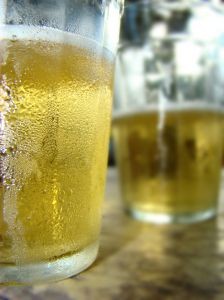While people often use the term “Breathalyzer” to describe the test used to determine a driver’s blood alcohol content (BAC), that is technically a brand name for a breath alcohol testing device that has not been used in many years. It is basically the way people use the term Band-Aid for any adhesive bandages or say Photoshop to mean any digital editing of a photograph. As it turns out, the makers of the respective products police their brands to make sure people don’t do that, but, as you can tell, those efforts haven’t worked so well.
 In reality, there are various breath alcohol test devices used, and the two most popular in the Commonwealth of Massachusetts are the Alcotest 9510, made by a company called Draeger, and an EC/IR II, made by a company called Intoximeter. These devices are very important in keeping drunk drivers off the road and thereby preventing drunk driving accidents in Boston and towns across Massachusetts and the nation at large.
In reality, there are various breath alcohol test devices used, and the two most popular in the Commonwealth of Massachusetts are the Alcotest 9510, made by a company called Draeger, and an EC/IR II, made by a company called Intoximeter. These devices are very important in keeping drunk drivers off the road and thereby preventing drunk driving accidents in Boston and towns across Massachusetts and the nation at large.
According to a recent news article from the Metro Daily West, a judge in Concord, Massachusetts, just outside of Boston, has decided to hear testimony relating to the scientific accuracy of the Alcotest 9510. Problems alleged with this machine have put on hold over 4,000 prosecutions of operating under the influence (OUI) of intoxicating liquor in the Commonwealth, and that is serious problem for police and those trying to curb drunk driving and drunk driving accidents in our state.
The argument is that the source code in these machines is not functioning in a proper way, and, therefore, is compromising the validity of the machines and the results they produce in a manner that could artificially raise the readout of a suspects BAC. If true, this would be a serious problem that could lead to the test results being thrown out. While it should be noted that all of the suspects in question are innocent unless and until they are proven guilty, throwing out 4,000 drunk driving cases could likely lead to more Boston drunk driving accidents, which, as our experienced personal injury attorneys can attest, would be a serious problem for those who share the roads and sidewalks of the Commonwealth.
However, one thing to keep in mind is that there is a different standard of proof in civil and criminal cases. In criminal cases, the charge must be proven beyond a reasonable doubt. In the Commonwealth, the courts use a case from the 1850s that explains that while reasonable doubt is not a mathematical calculation, the jurors must believe in their hearts to a moral degree of certainty that the defendant is guilty. In a civil case, the jury must be convinced it is more probable than not that the defendant is guilty.
This does not mean that scientific evidence not allowed in a criminal case would be allowed in a civil case, but it does mean that, even if someone does not get convicted in criminal court, they cannot be held liable in a civil drunk driving accident lawsuit.
If you or someone you love has been injured a Boston drunk driving accident, call for a free and confidential appointment at (617) 777-7777.
Additional Resources:
Judge opens hearing on OUI breath tests, Jan. 18, 2017, By Jim Haddadin, Metro West Daily News
More Blog Entries:
Report: Drunk Driving Crash at Daytona International Speedway, April 9, 2016, Boston DUI Injury Lawyer Blog
 Boston Drunk Driving Accident Lawyer Blog
Boston Drunk Driving Accident Lawyer Blog

